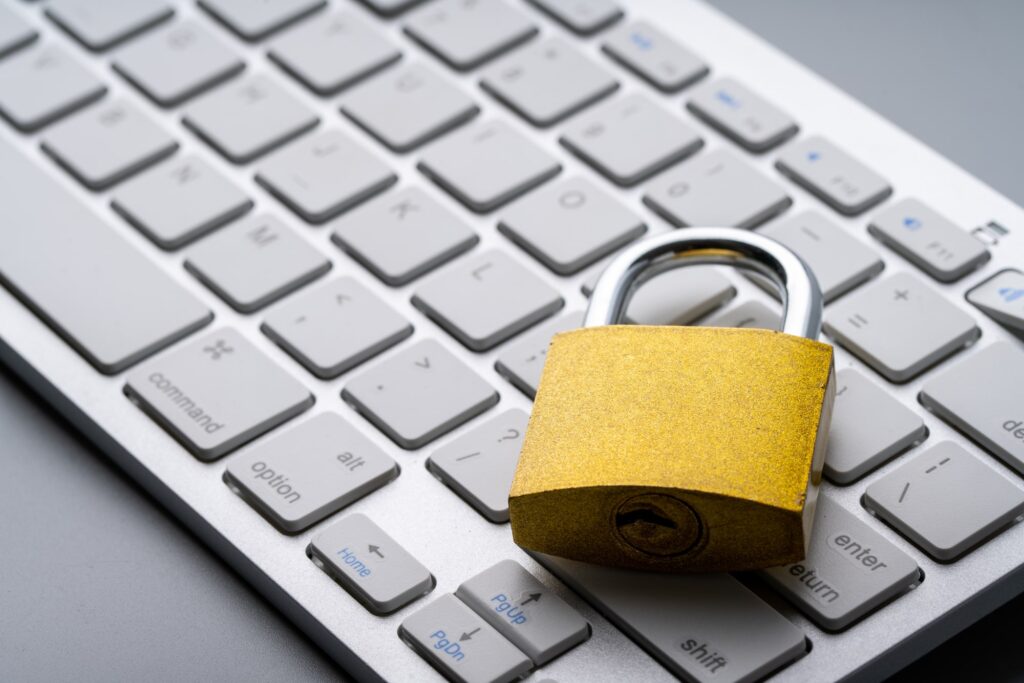With remote working now ever-present in economies at home and abroad, having a robust cybersecurity strategy that supports your remote workforce is essential. To help your business support and protect itself and its employees, we’ve put together this essential cyber security checklist to ensure you are better protected than ever against growing cyber threats.
Your 1-10 Essential Cyber Security Checklist
1. Don’t delay updates
2. Use VPNs
3. Train your staff
4. Watch out for phishing emails
5. Improve passwords and MFA
6. Keep personal devices separate
7. Protect Wi-Fi and home networks
8. Don’t send sensitive data over email or SMS
9. Control access for your remote workforce
10. Always be aware
Keep reading to learn more about how you can implement these cyber security essentials.
1. Don’t delay updates
Number one on our cyber security checklist is keeping on top of software updates. Once that notification comes through to update your software, we recommend actioning them as quickly as possible. This update will have been designed to keep your systems more secure and streamlined by fixing any potential vulnerabilities to keep your data safe. We have recently changed our client’s security software to one that includes automatic installation of these updates (called “patches”) and it has had a positive impact on keeping systems up-to-date.
2. Use VPNs
At number two is something that isn’t on many cyber security checklists but is becoming more common place. Using a VPN is essential, especially when working from home, to connect employees to your business network and environment securely. If you want to keep cybercriminals out of your business, a VPN provides a secure connection, so your remote workforce can safely access the information they need to carry out their job.
3. Train your staff
Unfortunately, accidents can happen and all it takes is one click. The best way to prevent this is to equip your staff with the knowledge they need to identify suspicious content. This risk is exasperated when working from home due to the distance and reduced communication, so it’s vital your team have been cybersecurity trained to create a culture that is cybersecurity aware and conscious.
4. Watch out for phishing emails
Related to number three on our cyber security checklist is being vigilant when it comes to suspicious looking emails. Malicious emails find a way into your inbox without your team noticing and can contain forms of malware and ransomware that have the potential to cripple businesses. These are often known as phishing emails and they can have a crippling impact on your business. They are getting more sophisticated and harder to spot, so ensuring your team are cyber security trained on what to look out for, could save your business from disaster.
As well as training, if you don’t have one of our Anti-Spam elements scanning your email for such malicious content, it might be time to look at this again.
5. Improve Passwords and MFA
You will have heard it before, but the more complex your password is, the better. Ensure your team has different passwords for their business and personal accounts; the more variety, the greater protection. Further shielding can be enforced using multi-factor-authentication, which adds another layer of security, keeping your accounts safer – an essential on any cyber security checklist.
6. Keep personal devices separate
Using personal devices to access your data while working from home is a risky move to make. Your personal accounts will contain confidential financial information and other private data, which could be intercepted if you’re not careful. Therefore, ensure your remote workforce are accessing data through work devices and a secure network to keep your employee’s safe.
7. Protect Wi-Fi and home networks
Home networks are generally less secure than office environments so, ensure your employees have the right solutions implemented. Solutions such as a VPN that can protect IP addresses, encrypt data, and mask your staff’s location. This is an extra layer of protection for your workforce so you can keep cybercriminals at bay and secure home networks, and should, without doubt, make it onto your cyber security checklist.
8. Don’t send sensitive information over email or text
Emails, team chat and text messages are forms of communication that are easy platforms for your team to keep connected through; however, they can be intercepted by hackers. A good alternative for sharing sensitive data is an encrypted file sharing tool, which can become part of your business’s technology stack.
However, sometimes an external party or a team member can still fall foul of this type of security breach. So, to add an additional layer of security, implementing specific email security solutions can give you that extra peace of mind.
9. Control access for your remote workforce
The less access granted to an employee, the less a cybercriminal will have access to your businesses’ confidential data, should they gain control of an employee’s system. Zero Trust is a popular security framework that requires all users (both inside and outside your organisation) to be authenticated, authorised, and validated before being granted access to your business’s data and applications.
10. Always be aware!
And the final entry on our cyber security checklist is to always be aware. Whether in the office or working from home, your cybersecurity strategy should always be updated and revised to ensure it evolves alongside the threat landscape. Staying on top of your business’s cybersecurity is the best way to keep it robust.
To assist, why not print this cyber security checklist so your employees will always have it on hand and help improve your cyber security posture.
Ready to master cyber security for your remote workforce?
By just reading our cyber security checklist you’ve taken the first step to better protecting yourself and your business. Awareness is one of the greatest tools in your cyber security arsenal, so the more you know, the more you can implement to stay protected.
But if you want to go that one step further, we have created the ultimate cyber security guide for remote working to protect your business from becoming a victim to the many cyber-threats lurking on the internet.
Keep your business and staff secure today with the top tips and tricks to overcoming the cyber-crimes that are targeting remote workers.



